Dr. Bogdan Savchynskyy, WiSe 2023/24
This seminar belongs to the Master in Physics (specialization Computational Physics, code "MVJC") and Master of Applied Informatics (code "IS") , but is also open for students of Scientific Computing and anyone interested.
Summary
Machine learning techniques are tightly coupled with optimization methods. Many techniques become practical only if there exists a supporting optimization tool.
In the seminar we will discuss a number of recent articles on combinatorial optimization with applications in computer vision and machine learning.
The topic of this semester is
Video-Based Scene Analysis.
We will consider inference and learning techniques for these problems as well as the related applications in computer vision.
General Information
Please register for the seminar in Müsli. The first seminar will take place on Thursday, October 19 at 14:00. Please make sure to participate!
- Seminar: Thu, 14:00 – 16:00 in Mathematikon B (Berliner Str. 43), SR B128
Entrance through the door at the side of Berlinerstrasse. Ring the door bell labelled "HCI am IWR" to be let in. The seminar room is on the 3rd floor. - Credits: 2 / 4 CP depending on course of study, see LSF
Seminar Repository:
Slides and schedule of the seminar will be placed in HeiBox .
Papers to Choose from:
[1] M. Bai, W. Luo, K. Kundu, and R. Urtasun, “Exploiting Semantic Information and Deep Matching for Optical Flow,” 2016.
[2] F. Brickwedde, S. Abraham, and R. Mester, “Mono-Stixels: Monocular depth reconstruction of dynamic street scenes,” 2018.
[3] S. Bullinger, C. Bodensteiner, M. Arens, and R. Stiefelhagen, “3D Vehicle Trajectory Reconstruction in Monocular Video Data Using Environment Structure Constraints,” 2018.
[4] J. M. Fácil, A. Concha, L. Montesano, and J. Civera, “Single-View and Multi-View Depth Fusion,” 2017.
[5] A. Geiger, J. Ziegler, and C. Stiller, “StereoScan: Dense 3d reconstruction in real-time,” 2011.
[6] L. Koestler, N. Yang, N. Zeller, and D. Cremers, “TANDEM: Tracking and Dense Mapping in Real-time using Deep Multi-view Stereo,” 2021.
[7] S. Kumar, Y. Dai, and H. Li, “Monocular Dense 3D Reconstruction of a Complex Dynamic Scene from Two Perspective Frames,” 2017.
[8] J. H. Lee, M.-K. Han, D. W. Ko, and I. H. Suh, “From Big to Small: Multi-Scale Local Planar Guidance for Monocular Depth Estimation,” 2019.
[9] C. Liu, S. Kumar, S. Gu, R. Timofte, and L. Van Gool, “VA-DepthNet: A Variational Approach to Single Image Depth Prediction,” 2023.
[10] C. Liu, S. Kumar, S. Gu, R. Timofte, and L. Van Gool, “Single Image Depth Prediction Made Better: A Multivariate Gaussian Take,” 2023.
[11] A. Mitiche, Y. Mathlouthi, and I. Ben Ayed, “Monocular Concurrent Recovery of Structure and Motion Scene Flow,” 2015.
[12] V. Patil, W. Van Gansbeke, D. Dai, and L. Van Gool, “Don’t Forget The Past: Recurrent Depth Estimation from Monocular Video,” 2020.
[13] L. Piccinelli, C. Sakaridis, and F. Yu, “iDisc: Internal Discretization for Monocular Depth Estimation,” 2023.
[14] R. Ranftl, V. Vineet, Q. Chen, and V. Koltun, “Dense Monocular Depth Estimation in Complex Dynamic Scenes,” 2016.
[15] R. Sabzevari and D. Scaramuzza, “Multi-body Motion Estimation from Monocular Vehicle-Mounted Cameras,” 2016.
[16] R. Schuster, C. Unger, and D. Stricker, “A Deep Temporal Fusion Framework for Scene Flow Using a Learnable Motion Model and Occlusions,” 2020.
[17] Z. Teed and J. Deng, “DROID-SLAM: Deep Visual SLAM for Monocular, Stereo, and RGB-D Cameras,” 2022.
[18] Z. Teed, L. Lipson, and J. Deng, “Deep Patch Visual Odometry,” 2023.
[19] F. Wimbauer, N. Yang, L. Von Stumberg, N. Zeller, and D. Cremers, “MonoRec: Semi-Supervised Dense Reconstruction in Dynamic Environments from a Single Moving Camera,” 2021.
[20] D. Xiao, Q. Yang, B. Yang, and W. Wei, “Monocular scene flow estimation via variational method,” 2017.
[21] K. Yamaguchi, D. McAllester, and R. Urtasun, “Robust Monocular Epipolar Flow Estimation,” 2013.
[22] K. Yamaguchi, D. McAllester, and R. Urtasun, “Efficient Joint Segmentation, Occlusion Labeling, Stereo and Flow Estimation,” 2014.
[23] N. Yang, L. Von Stumberg, R. Wang, and D. Cremers, “D3VO: Deep Depth, Deep Pose and Deep Uncertainty for Monocular Visual Odometry,” 2020.
[24] X. Yin, X. Wang, X. Du, and Q. Chen, “Scale Recovery for Monocular Visual Odometry Using Depth Estimated with Deep Convolutional Neural Fields,” 2017.
[25] H. Zhou, B. Ummenhofer, and T. Brox, “DeepTAM: Deep Tracking and Mapping with Convolutional Neural Networks,” 2020.
Presentation schedule
TBA
Contact
Dr. Bogdan Savchynskyy
In case you contact me via email, its subject should contain the tag [SemCV]. Emails without this tag have a very high chance to be lost and get ignored therefore!


